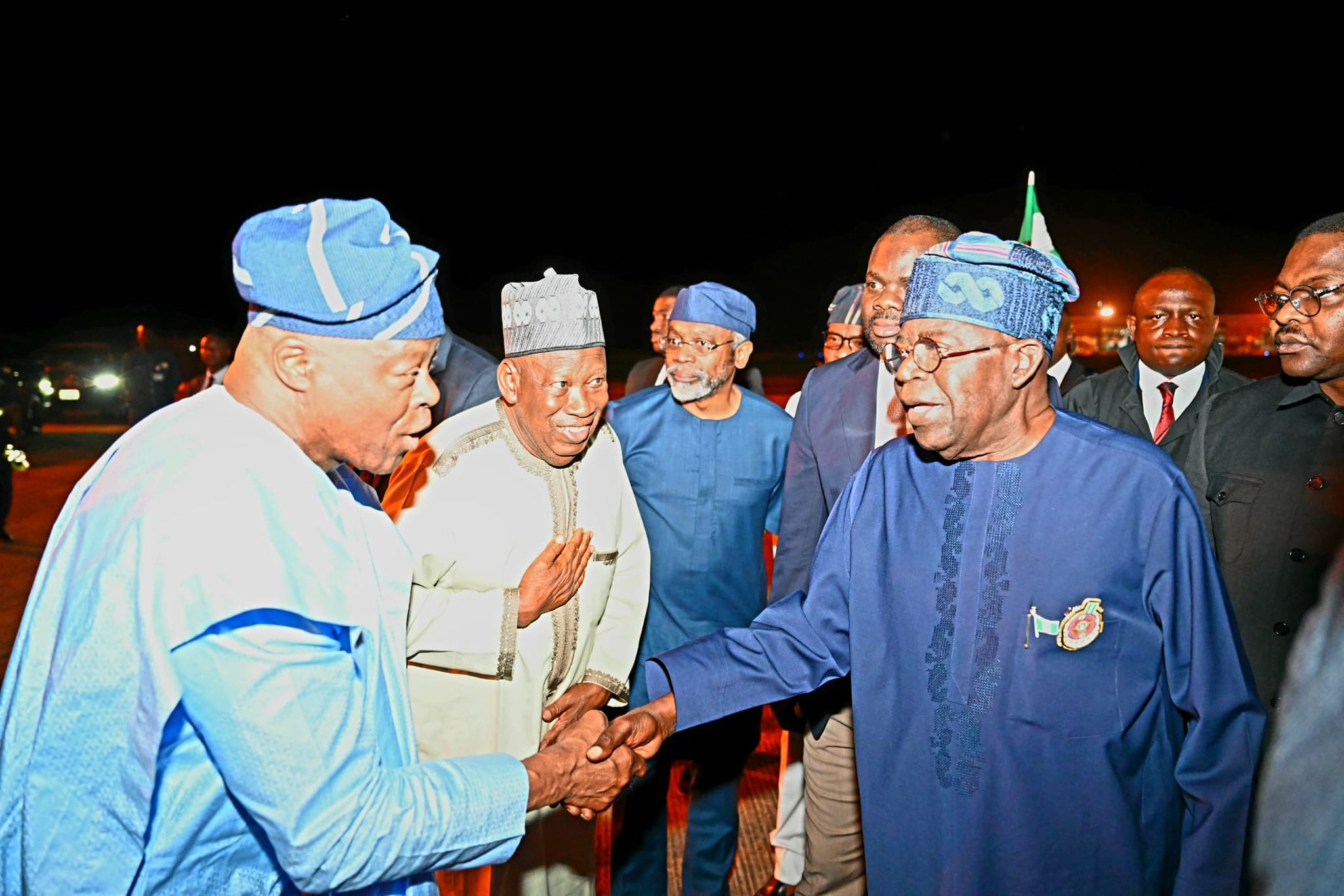President Bola Tinubu has returned to Nigeria following his significant participation in the Joint Arab-Islamic Summit in Riyadh, Saudi Arabia, where he presented Nigeria’s position on the ongoing Middle East crisis and called for concrete action beyond mere condemnation. The President’s arrival at the Nnamdi Azikiwe International Airport in Abuja around 8 PM on Tuesday marked the end of a diplomatic mission that highlighted Nigeria’s growing voice in international affairs.
The high-level summit, hosted by Saudi Arabia’s King Salman and Crown Prince Mohammed bin Salman, brought together leaders from across the Arab and Islamic world to address pressing issues in the Middle East, with particular focus on the Israel-Palestinian conflict. President Tinubu’s participation and subsequent statements demonstrated Nigeria’s commitment to playing a constructive role in global peace initiatives.
In a compelling address at the summit, Tinubu took a firm stance on the ongoing conflict, emphasizing that “empty condemnations” are insufficient to resolve a crisis that has persisted for generations. This statement reflected a growing frustration with the international community’s approach to the Palestinian issue and called for more concrete actions toward achieving lasting peace.
The President’s advocacy for an immediate ceasefire in Gaza highlighted Nigeria’s humanitarian concerns about the deteriorating situation in the region. His support for the two-state solution demonstrated Nigeria’s commitment to a balanced approach that recognizes the legitimate aspirations of both Israelis and Palestinians for self-determination and peaceful coexistence.
Tinubu’s diplomatic engagement at the summit aligns with Nigeria’s historical position as a mediator in international conflicts and its growing influence in global affairs. His articulation of Nigeria’s stance on the two-state solution as a “beacon of hope” reinforced the country’s role as a voice of reason in international diplomacy.
The President’s return was marked by a formal reception at the airport, where he was welcomed by key government officials including his Chief of Staff, Femi Gbajabiamila, various ministers, and security heads. This reception underscored the importance attached to his participation in the summit and its potential implications for Nigeria’s international relations.
The timing of the summit and Tinubu’s participation came at a crucial moment when the international community is grappling with finding effective solutions to the escalating crisis in the Middle East. His presence at such a significant gathering of Arab and Islamic leaders highlighted Nigeria’s strategic importance in global diplomacy and its potential role in fostering international dialogue.
President Tinubu’s emphasis on moving beyond condemnations to actual solutions represents a pragmatic approach to international conflict resolution. This stance aligns with Nigeria’s growing assertiveness in international affairs and its commitment to contributing meaningfully to global peace and security efforts.
The summit provided an important platform for Nigeria to reinforce its diplomatic ties with Arab and Islamic nations while maintaining its balanced approach to the Middle East conflict. This diplomatic engagement could potentially open new avenues for bilateral and multilateral cooperation between Nigeria and participating nations.
As Nigeria continues to navigate complex international relationships, President Tinubu’s participation in the Riyadh summit demonstrates the country’s commitment to engaging with global issues while maintaining its independent foreign policy stance. His return brings with it the potential for enhanced diplomatic relations and a strengthened voice in international affairs.
The President’s successful participation in the summit and his safe return mark another milestone in Nigeria’s diplomatic efforts under the current administration. As the situation in the Middle East continues to evolve, Nigeria’s role as a voice for peace and stability in international forums becomes increasingly significant.
Looking ahead, the outcomes of this summit and Nigeria’s participation could influence future diplomatic initiatives and international cooperation in addressing not only the Middle East crisis but other global challenges requiring collective action and diplomatic solutions.



